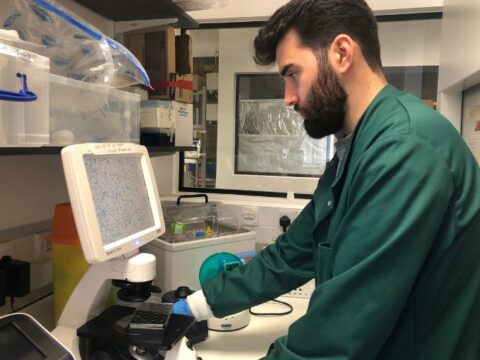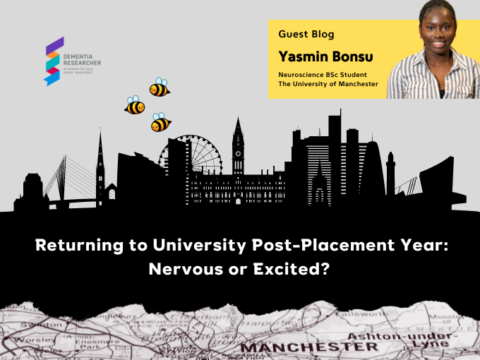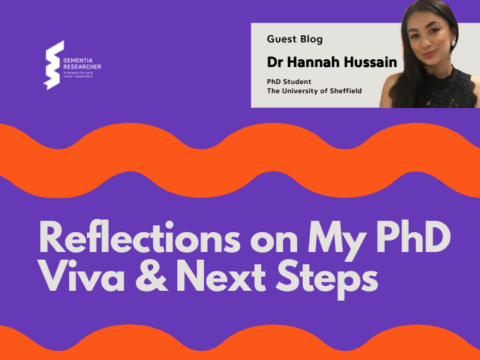In recent years, the landscape of PhD funding has shifted significantly, with the rise of Doctoral Training Centres (DTCs) playing an important role in reshaping postgraduate education.
Late last month the Alzheimer’s Society announced it would be investing £9m over 5 years, funding 85 PhD students around the themes of Vascular Dementia, Lewy Body Dementias & Integrated Care.
These centres, which pool resources to offer structured, interdisciplinary, and cohort-based training, present a marked contrast to the more traditional model of individual PhD funding (and often include funding contributions from the hosts and not just the funder).
While both funding mechanisms have their own advantages, the DTC model is increasingly being recognised as a more strategic and holistic approach to doctoral education. This blog will explore the value of DTCs in comparison to individual funding models, examining the advantages they offer for students, supervisors, and the wider academic ecosystem.
Interdisciplinary Training and Collaboration
One of the primary advantages of DTCs is their capacity to foster interdisciplinary collaboration. By bringing together students from various academic backgrounds under a shared thematic umbrella, DTCs create an environment where research is not confined to narrow disciplinary silos. Instead, PhD candidates are encouraged to explore and integrate multiple perspectives, which can lead to more innovative solutions to complex problems.
In contrast, individual PhD funding models often reinforce the traditional, single-discipline approach. While this may work well for some fields, it can be limiting in today’s research landscape, where many of the most pressing challenges – from climate change to global health – demand an interdisciplinary approach. DTCs actively promote this integration, training students to work across disciplines and equipping them with a broader toolkit that can enhance both their research and future career prospects.
Cohort-Based Learning and Peer Support
Another significant benefit of the DTC model is the emphasis on cohort-based learning. In these centres, students typically enter as part of a larger cohort, developing alongside their peers over the course of their PhD studies. This offers several advantages. Firstly, it fosters a strong sense of community and reduces the isolation often experienced in individual PhD programmes. PhD research can be a lonely endeavour, and the peer support offered within a DTC cohort can be invaluable for maintaining motivation and well-being.
Furthermore, cohort-based learning encourages the sharing of knowledge and skills between students. In a DTC, students are likely to have different areas of expertise and research experience, creating opportunities for informal peer-to-peer learning. This contrasts with the individual funding model, where PhD candidates often work in relative isolation, relying primarily on their supervisors for guidance.

A recent report by the Higher Education Policy Institute found that over 75% of PhD students experience feelings of anxiety or stress during their studies. DTC PhD Funding allows peer support cohort groups.
Structured and Tailored Training Programmes
DTCs also offer a more structured approach to PhD training. Many DTCs incorporate formal training components, such as taught courses, workshops, and professional development modules, which are often tailored to the specific needs of the research area. This structured approach ensures that students not only gain depth in their chosen field but also acquire a broad range of transferable skills that will serve them in both academic and non-academic careers.
In individual funding models, the availability and quality of training can vary significantly depending on the institution and the supervisor. While some institutions offer excellent training opportunities, the responsibility for seeking out and accessing these resources often falls on the student. In contrast, DTCs provide a more cohesive and centralised training programme, ensuring that all students benefit from the same high-quality opportunities.
Enhanced Supervision and Networking Opportunities
In a DTC, PhD students are often supervised by a team of academics, rather than a single individual (of course this can also be the case in other models). This multi-supervisor model allows for a broader range of expertise and perspectives to inform the student’s research. It also reduces the risk of supervision becoming too narrow or one-dimensional, as students benefit from the input of multiple researchers with different strengths and specialisms.
Moreover, DTCs frequently offer enhanced networking opportunities. Many DTCs have strong links with industry, government, and other academic institutions, enabling students to build professional connections that can be instrumental in their future careers. While students with individual funding may also be able to access networking opportunities, the structured nature of DTC programmes often makes these opportunities more accessible and better integrated into the PhD experience.
Efficiency in Resource Allocation
From a funding body’s perspective, DTCs offer a more efficient model of resource allocation. By concentrating funding in specific thematic areas or centres of excellence, DTCs ensure that resources are focused on strategic priorities. This allows funding bodies to support critical research areas and to maximise the impact of their investment.
In contrast, individual PhD funding models often distribute resources more diffusely, which can make it difficult to achieve the same level of strategic alignment. While supporting individual researchers is important, the DTC model allows for a more coordinated approach that can drive forward research in key areas.
Challenges of the DTC Model
However, while DTCs offer many advantages, they are not without their challenges. One potential drawback is that the highly structured nature of DTCs may not suit all students. Some researchers may prefer the freedom and flexibility offered by individual funding, which allows them to tailor their PhD experience more closely to their personal interests and needs. Furthermore, the cohort-based model, while generally beneficial, may not appeal to more independent learners who thrive in a less collaborative environment.
There is also a risk that the thematic focus of DTCs may inadvertently exclude talented researchers whose interests do not align with the strategic priorities of the centre. In such cases, individual funding can offer a valuable alternative, allowing students to pursue research in areas that may be underrepresented in the DTC model.
Finally… if you’re an upcoming Research Fellow, and hoped to apply for funding to get yourself a PhD student in the future, you may find it more difficult, as DTC commitments are often for several years.
Overall, the DTC model offers a wealth of advantages that can significantly enhance the PhD experience. By fostering interdisciplinary collaboration, offering structured training, and creating strong peer networks, DTCs provide a more holistic approach to doctoral education. They also allow for more strategic resource allocation, enabling funding bodies to focus on key research priorities.
That being said, individual funding models still have an important role to play, particularly for students whose research interests fall outside the thematic boundaries of DTCs or who prefer a more independent approach to their studies. Ultimately, a diverse ecosystem that includes both DTCs and individual funding models will best serve the varied needs of the academic community, ensuring that a wide range of research areas and student preferences are supported.
Learn more about the detail of the new Alzheimer’s Society DTC from our livestream recording:
https://youtube.com/live/voQbpmWunGo?feature=share

Adam Smith
Author
Adam Smith was born in the north, a long time ago. He wanted to write books, but ended up working in the NHS, and at the Department of Health. He is now Programme Director at University College London (which probably sounds more important than it is – his words). He has led a number of initiatives to improve dementia research (including this website, Join Dementia Research & ENRICH), as well as pursuing his own research interests. In his spare time, he grows vegetables, builds Lego, likes rockets & spends most of his time drinking too much coffee and squeezing technology into his house.

 Print This Post
Print This Post




